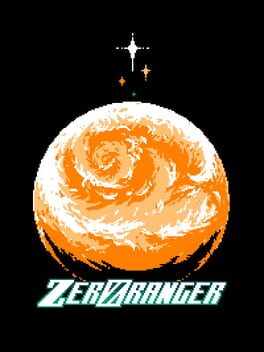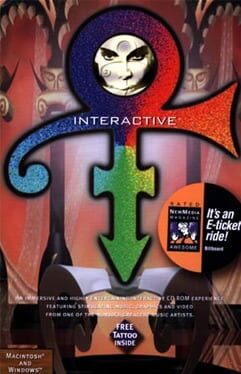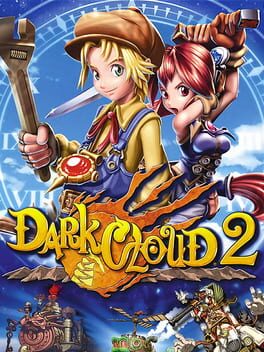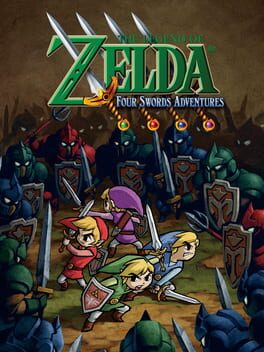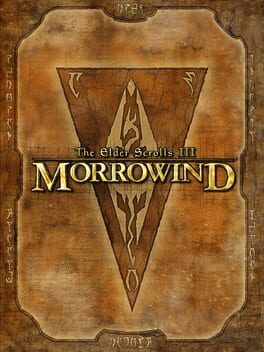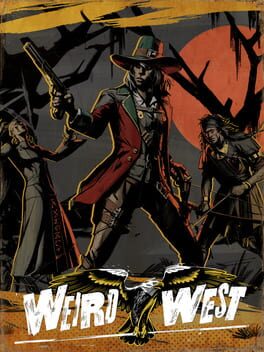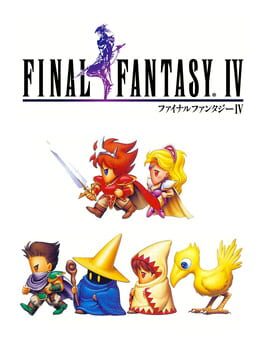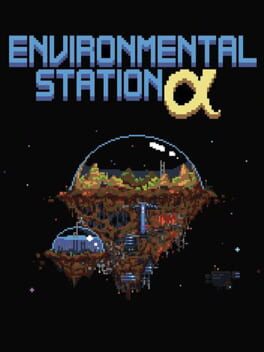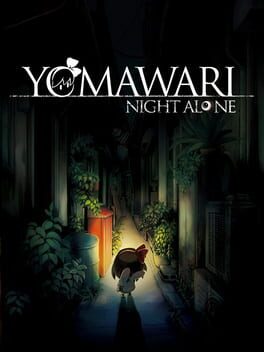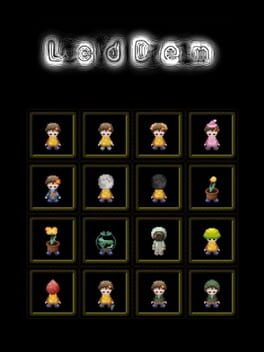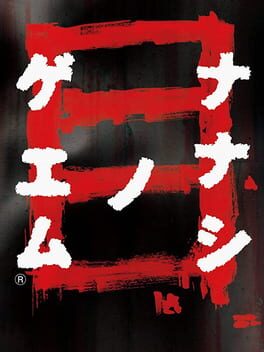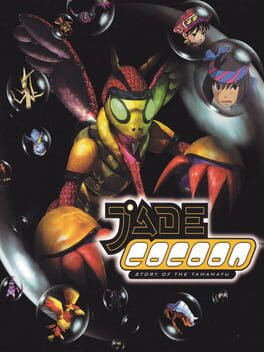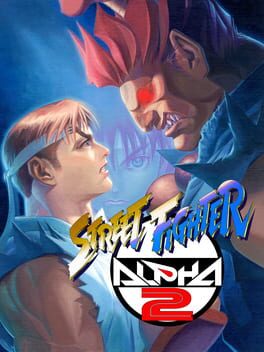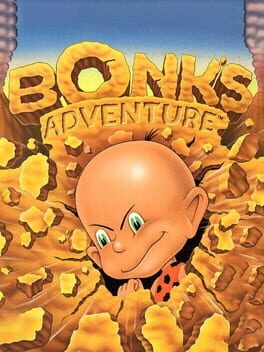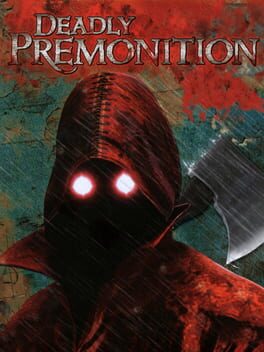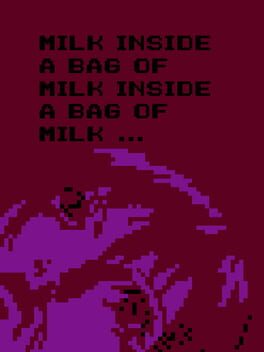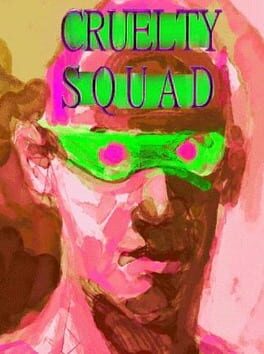TheBeigeKnight
15 reviews liked by TheBeigeKnight
ZeroRanger
2018
Prince Interactive
1994
It doesn’t really need to be said that Prince was a living legend. The world renowned multi-instrumentalist maintained a career that spanned four decades, cut short only because of his untimely passing in 2016. There were sharp peaks and valleys in his popularity, like all great musicians, but he consistently managed to catapult himself back into the conversation due to his lightning quick adaptability. When The Revolution—the backing band that helped propel him into superstardom with Purple Rain—dissolved, he didn’t waste any time getting back into the studio by himself. He put together one of the best albums of his career, Sign "☮︎" the Times, while his personal and professional relationships were in a highly mercurial state. In fact, this period was so prolific that the label executives at Warner Bros. had to negotiate with Prince to cut down the length of the album; it ended up releasing “only” as a double LP instead of an absurd triple record affair.
Prince’s versatility wasn’t only limited to his musical talent. His headlong embrace of new technology was undoubtedly a major factor in his unprecedented ability to stave off irrelevancy. He was an early adopter of the Fairlight CMI, a synthesizer that few musicians could even afford in the mid 1980s. Prince’s vault where he hoarded his vast reserves of unreleased music had a DOS-based computer cataloging system on its frontend, affectionately called Mr. Vault Guy, that accounted for the contents of every tape, disc, and hard drive. He was also much earlier than most to the idea of internet distribution, stubbornly insisting on selling the Crystal Ball box set through his own website in 1998, to the detriment of sales.
Given his love for the bleeding edge of progress, it only makes sense that Prince would become interested in video games. In 1994, when Prince Interactive was released, it was yet another volatile period for the artist. To set the stage a little bit: his final album with Warner, Come, was set to release in two months. He purposely refused to promote the new project as a means of spiting the label, ending his contractual obligations by giving them as little profit as possible. He changed his name to an unpronounceable symbol the year before, forcing everyone to call him “The Artist Formerly Known As Prince.” The name of the game, technically, isn’t even Prince Interactive, but we have to call it something!
Cyan’s highly influential Myst released a year prior to Interactive, and the similarities are more than superficial. You find yourself in a fictionalized version of Prince’s home and recording studio Paisley Park, solving simple point-and-click puzzles. Broadly, the objective is to search the mansion and assemble the scattered pieces of the nameless musician’s eponymous symbol as if they’re fragments of the Triforce, though in practice this amounts to a flimsy excuse to poke around and uncover various Prince-related easter eggs. There are an abundance of music snippets, photos, and interviews with other musicians—in which they all heap praise on Prince—to be found. The game even kicks off with an exclusive song called “Interactive,” ostensibly a song about being a song in a video game. (He would pull a similar move years later with “Cybersingle,” a song about the fact that you could download it from the Internet.)
What ends up being most interesting about Interactive is not necessarily how it innovates, but how it’s indicative of its time. Functionally, it does little to stand out from contemporary adventure games like Myst, Beneath a Steel Sky, or Day of the Tentacle. (It’s not even unique as a piece of multimedia artist memorabilia; JUMP: The David Bowie Interactive CD-ROM released earlier the same year.) Historically, it acted as an important document for fans and scribes looking to document the inner workings of Prince’s operation; tours of Paisley Park weren’t permitted while he was alive, and despite all the fantastical embellishments of his Minnesota home, this was the only way to get a surprisingly accurate walkthrough of his studio. Thematically, it tells a story of Prince’s legacy as it stood in the mid ‘90s—full of references to his unassailable accomplishments, but also serving to build up hype for the second act of his career.
Prince’s versatility wasn’t only limited to his musical talent. His headlong embrace of new technology was undoubtedly a major factor in his unprecedented ability to stave off irrelevancy. He was an early adopter of the Fairlight CMI, a synthesizer that few musicians could even afford in the mid 1980s. Prince’s vault where he hoarded his vast reserves of unreleased music had a DOS-based computer cataloging system on its frontend, affectionately called Mr. Vault Guy, that accounted for the contents of every tape, disc, and hard drive. He was also much earlier than most to the idea of internet distribution, stubbornly insisting on selling the Crystal Ball box set through his own website in 1998, to the detriment of sales.
Given his love for the bleeding edge of progress, it only makes sense that Prince would become interested in video games. In 1994, when Prince Interactive was released, it was yet another volatile period for the artist. To set the stage a little bit: his final album with Warner, Come, was set to release in two months. He purposely refused to promote the new project as a means of spiting the label, ending his contractual obligations by giving them as little profit as possible. He changed his name to an unpronounceable symbol the year before, forcing everyone to call him “The Artist Formerly Known As Prince.” The name of the game, technically, isn’t even Prince Interactive, but we have to call it something!
Cyan’s highly influential Myst released a year prior to Interactive, and the similarities are more than superficial. You find yourself in a fictionalized version of Prince’s home and recording studio Paisley Park, solving simple point-and-click puzzles. Broadly, the objective is to search the mansion and assemble the scattered pieces of the nameless musician’s eponymous symbol as if they’re fragments of the Triforce, though in practice this amounts to a flimsy excuse to poke around and uncover various Prince-related easter eggs. There are an abundance of music snippets, photos, and interviews with other musicians—in which they all heap praise on Prince—to be found. The game even kicks off with an exclusive song called “Interactive,” ostensibly a song about being a song in a video game. (He would pull a similar move years later with “Cybersingle,” a song about the fact that you could download it from the Internet.)
What ends up being most interesting about Interactive is not necessarily how it innovates, but how it’s indicative of its time. Functionally, it does little to stand out from contemporary adventure games like Myst, Beneath a Steel Sky, or Day of the Tentacle. (It’s not even unique as a piece of multimedia artist memorabilia; JUMP: The David Bowie Interactive CD-ROM released earlier the same year.) Historically, it acted as an important document for fans and scribes looking to document the inner workings of Prince’s operation; tours of Paisley Park weren’t permitted while he was alive, and despite all the fantastical embellishments of his Minnesota home, this was the only way to get a surprisingly accurate walkthrough of his studio. Thematically, it tells a story of Prince’s legacy as it stood in the mid ‘90s—full of references to his unassailable accomplishments, but also serving to build up hype for the second act of his career.
Dark Cloud 2
2002
Almost 20 years after its release, playing Four Swords Adventures has only recently become a plausible endeavor. In The Ancient Days, in order to play this game in "the real way" that the developers intended, one would need access to the following:
-A TV in a location suitable for four prospective players
-A Nintendo Gamecube
-A copy of The Legend of Zelda: Four Swords Adventures
-Three other local human beings of comparable skill, compatible schedules, a consistent and persistent interest in playing a 15 hour long Zelda game to completion, and a modicum of amicable chemistry amongst themselves and with you (So we had might as well give up right now)
-FOUR(!!!) working Gameboy Advances
-Enough batteries (or charging solutions) to sustain those four GBAs for 15 hours of play
-FOUR(!!!) rare and expensive GBA to GCN cables, of which I personally saw exactly ONE in the entire decade between 2000 and 2010.
Now we have Parsec, Dolphin, and Discord, and we can play this very fun and very cool co-op game.
Oh did you want like, actual criticism? Uh... the more puzzly levels can be huge pace breakers in a way that isn't really great for an otherwise fast-paced thing like this. It would also benefit from some system that could warp a lagging teammate to the screen boundary that all three other players are pushing against, trying to move on and patiently waiting. Generally though, this rules. Great fun.
-A TV in a location suitable for four prospective players
-A Nintendo Gamecube
-A copy of The Legend of Zelda: Four Swords Adventures
-Three other local human beings of comparable skill, compatible schedules, a consistent and persistent interest in playing a 15 hour long Zelda game to completion, and a modicum of amicable chemistry amongst themselves and with you (So we had might as well give up right now)
-FOUR(!!!) working Gameboy Advances
-Enough batteries (or charging solutions) to sustain those four GBAs for 15 hours of play
-FOUR(!!!) rare and expensive GBA to GCN cables, of which I personally saw exactly ONE in the entire decade between 2000 and 2010.
Now we have Parsec, Dolphin, and Discord, and we can play this very fun and very cool co-op game.
Oh did you want like, actual criticism? Uh... the more puzzly levels can be huge pace breakers in a way that isn't really great for an otherwise fast-paced thing like this. It would also benefit from some system that could warp a lagging teammate to the screen boundary that all three other players are pushing against, trying to move on and patiently waiting. Generally though, this rules. Great fun.
Morrowind is a relic of a bygone age where immersion and freedom were more important than "game design." The world is your gigantic, hand-crafted oyster, and with the mods that exist today you could pretty much just play it until you die. I can't give it more than a 4 because I remember what it's like to flail my sword uselessly at an ever-growing swarm of Cliff Racers.
Weird West
2022
Raphaël Colantonio’s decision to leave Arkane stemmed from wanting to get away from the bloated-ness and inefficiency of AAA game development – he often used the example of how chairs would take 2 days to model during the making of Prey 2017, while during the days of Arx Fatalis it was closer to 2 hours. So how’s his first experiment in scaling down to the indie realm gone? Pretty well, all things considered. I’ve felt for a long time now that Colantonio is one of the best game directors currently working and I’m happy to say that Weird West is another solid attestation to that, with the caveat that it takes a good while before it clicks.
For anyone who’s familiar with immersive sims, the most immediately offputting part about Weird West is its camera perspective. I almost fell prey to this myself, but once you become more comfortable with the game, you’ll start to realise that all the juicy emergent goodness that makes this design philosophy (or, if you dare, this genre) tick is still there, even if you’re not witnessing it from the same point of view as your character. More than once, I set off an unintended chain reaction of events via independent but interlinking gameplay systems that ended up revealing a new path through an area or which allowed me to complete a quest in a roundabout, unscripted way, and these sorts of organic, player-directed experiences are what Looking Glass Studios ultimately predicated the term upon in 1997. Where so many games popularly touted as living up to the definition just don’t, Weird West surely does.
Environmental interactivity arguably doesn’t quite approach the craziness of Prey 2017, but Weird West’s integration of status effects into its physics engine gives it a leg of its own to stand on. I’m a huge fan of how soaked containers dynamically fill up with water for loads of reasons, but special mention also goes to the sheer amount of stuff you can set on fire, because there’s nothing quite like accidentally burning down an entire farmstead or patch of forest in the process of fending off an ambush. I like how these properties are applied to character abilities too because of the room for experimentation it allows, especially when you combine several at once. I particularly enjoy secreting poison pools as the Pigman and then setting them alight with explosive shotgun shells to make a porky mini-nuke on demand, but the beauty of games like this is that I'll probably look back on a current favourite tactic like that and eventually think of it as rudimentary compared to what's possible when you dig deeper into its systems.
Weird West’s story is more interesting than it’s being given credit for on here, but I don’t blame anyone for tapping out before it gets to the point where you can say that. I get the need to ease people into an unorthodox setting with a vanilla premise, but Jane Bell’s narrative hook goes beyond vanilla and pivots itself on something that you as a player have no reason to care about. Jane might be fussing about where her husband is, but I’m not. Who is he to me? It runs the risk of driving a wedge between the player and their character, but the other four protagonists (especially the one immediately after Jane) more than make up for this in terms of intrigue and how elegantly they fill the “blank slate player avatar” role, albeit not quite as perfectly as Morgan Yu.
In terms of niggles, the movement comes to mind. Dishonored 1 and Prey 2017 have some of the most liberating, intrinsically satisfying movement in the medium – you explore every nook and cranny of Dunwall and Talos I not because you're told to, but because it feels so good to do it that you naturally want to. Despite the impressive size of its world, I never felt that same enticement in Weird West because its movement options are so paltry in comparison. And how’s about those character portraits not matching their models? Like, at all? I’m willing to chalk this up to a case of “small indie company please understand,” because I can’t imagine anyone actively wanted lean, bearded, grizzled veteran gunslingers to share the same in-game appearance as (oddly abundant) overweight, alcoholic Asian women. It’s true that this camera angle allows for some mental abstraction on the player’s part – Fallout 1&2, both big influences on Weird West, use one animation for loads of different stuff – but past a certain point, I feel like I’m being asked to deny what’s in front of my eyes. Or even what’s happening around me, sometimes, considering how often my companions would try attacking invincible children or be rendered immobile by an ankle-high step, the deadliest of all the west’s creatures.
In the grand scheme of things, though, issues like these are probably worth looking past. Immersive sims have been around for longer than I’ve been alive, and in that time, there's not been nearly as many breakout hits or unambiguous commercial successes as you'd assume from the notoriety of examples like Deus Ex or System Shock; we’re pretty fortunate to still be getting any new spins on the formula at all. And as a new spin on the formula, Weird West’s definitely an impressive first showing for WolfEye, but also one with more than a few holdovers of the days when its staff were still under the watchful eye of Bethesda’s investors – hopefully their newfound freedom permits them to become a bit bolder and weirder from here on out.
For anyone who’s familiar with immersive sims, the most immediately offputting part about Weird West is its camera perspective. I almost fell prey to this myself, but once you become more comfortable with the game, you’ll start to realise that all the juicy emergent goodness that makes this design philosophy (or, if you dare, this genre) tick is still there, even if you’re not witnessing it from the same point of view as your character. More than once, I set off an unintended chain reaction of events via independent but interlinking gameplay systems that ended up revealing a new path through an area or which allowed me to complete a quest in a roundabout, unscripted way, and these sorts of organic, player-directed experiences are what Looking Glass Studios ultimately predicated the term upon in 1997. Where so many games popularly touted as living up to the definition just don’t, Weird West surely does.
Environmental interactivity arguably doesn’t quite approach the craziness of Prey 2017, but Weird West’s integration of status effects into its physics engine gives it a leg of its own to stand on. I’m a huge fan of how soaked containers dynamically fill up with water for loads of reasons, but special mention also goes to the sheer amount of stuff you can set on fire, because there’s nothing quite like accidentally burning down an entire farmstead or patch of forest in the process of fending off an ambush. I like how these properties are applied to character abilities too because of the room for experimentation it allows, especially when you combine several at once. I particularly enjoy secreting poison pools as the Pigman and then setting them alight with explosive shotgun shells to make a porky mini-nuke on demand, but the beauty of games like this is that I'll probably look back on a current favourite tactic like that and eventually think of it as rudimentary compared to what's possible when you dig deeper into its systems.
Weird West’s story is more interesting than it’s being given credit for on here, but I don’t blame anyone for tapping out before it gets to the point where you can say that. I get the need to ease people into an unorthodox setting with a vanilla premise, but Jane Bell’s narrative hook goes beyond vanilla and pivots itself on something that you as a player have no reason to care about. Jane might be fussing about where her husband is, but I’m not. Who is he to me? It runs the risk of driving a wedge between the player and their character, but the other four protagonists (especially the one immediately after Jane) more than make up for this in terms of intrigue and how elegantly they fill the “blank slate player avatar” role, albeit not quite as perfectly as Morgan Yu.
In terms of niggles, the movement comes to mind. Dishonored 1 and Prey 2017 have some of the most liberating, intrinsically satisfying movement in the medium – you explore every nook and cranny of Dunwall and Talos I not because you're told to, but because it feels so good to do it that you naturally want to. Despite the impressive size of its world, I never felt that same enticement in Weird West because its movement options are so paltry in comparison. And how’s about those character portraits not matching their models? Like, at all? I’m willing to chalk this up to a case of “small indie company please understand,” because I can’t imagine anyone actively wanted lean, bearded, grizzled veteran gunslingers to share the same in-game appearance as (oddly abundant) overweight, alcoholic Asian women. It’s true that this camera angle allows for some mental abstraction on the player’s part – Fallout 1&2, both big influences on Weird West, use one animation for loads of different stuff – but past a certain point, I feel like I’m being asked to deny what’s in front of my eyes. Or even what’s happening around me, sometimes, considering how often my companions would try attacking invincible children or be rendered immobile by an ankle-high step, the deadliest of all the west’s creatures.
In the grand scheme of things, though, issues like these are probably worth looking past. Immersive sims have been around for longer than I’ve been alive, and in that time, there's not been nearly as many breakout hits or unambiguous commercial successes as you'd assume from the notoriety of examples like Deus Ex or System Shock; we’re pretty fortunate to still be getting any new spins on the formula at all. And as a new spin on the formula, Weird West’s definitely an impressive first showing for WolfEye, but also one with more than a few holdovers of the days when its staff were still under the watchful eye of Bethesda’s investors – hopefully their newfound freedom permits them to become a bit bolder and weirder from here on out.
If you've ever wanted to know how beneficial snappy movement, innovative storytelling, and a wonderful soundtrack can possibly be to a game, play Nier Replicant.
This is a game loaded with drudgery. Almost every side quest is a menial chore and the main game's content is recycled ad nauseum. If not for the very solid combat and the fantastic strengths above, this game would be insufferable to play.
Typically though, it's not. The soundtrack breeds a desire to simply relax and inhabit the game's world, and both movement and combat are pleasing enough to ease the tedious tasks given to the player.
I'm honestly a bit surprised to see such universally high ratings for this on here, because this game almost feels destined for controversy. Love it or hate it, it is certainly memorable and distinct.
This is a game loaded with drudgery. Almost every side quest is a menial chore and the main game's content is recycled ad nauseum. If not for the very solid combat and the fantastic strengths above, this game would be insufferable to play.
Typically though, it's not. The soundtrack breeds a desire to simply relax and inhabit the game's world, and both movement and combat are pleasing enough to ease the tedious tasks given to the player.
I'm honestly a bit surprised to see such universally high ratings for this on here, because this game almost feels destined for controversy. Love it or hate it, it is certainly memorable and distinct.
Final Fantasy IV
1991
Final Fantasy 4 is like a giant breaking through a tiny door: its sheer size makes everyone realise they need to build doors bigger from now on, but that doesn’t make the huge splintery mess left behind not a mess.
This is Final Fantasy’s first and foremost sin: having an ambition too great for the medium in which it then existed. But we are all sinners here, and as far as sins go there are far worse to commit. War crimes, for instance.
I do not mention sin frivolously: it is a quintessential part of Final Fantasy 4’s voluminous themes, themes that strained at the seams of the Super Famicom like the coquettish vest of a French aristocrat after a regular 12 course lunch on the 14th of July 1789. And like that poor powdered wig (soon to be without a head), a revolution was coming.
Again, I do not mention the revolution frivolously, for to understand Final Fantasy 4, one must understand that the text is translated poorly. Localised badly into English from the original French. Yes, the body might be Japanese but the soul of Final Fantasy 4 was penned by a man known affectionately as Victor Motherfucking Hugo.
Les Miserables (The Miserable Ones in its native French) is a novel written by Victor Hugo. The hero of Les Miserables is Jean Valjean, a French commoner who is raised poor and in a brutal environment who, out of obligation to his younger nephews, steals food for them. For this he is sent to jail for seven years. When he attempts to escape, he is given another seven. When he is finally released, he finds his status as a former prisoner prevents him from being hired. He has been given a bad hand, but he worsens it by becoming a wild animal.
It is during this chaos time that our Jean meets the Bishop Myriel, a kindly Christian bishop in a regional town. Valjean is poor and starving and tired, Myriel gives him food and shelter. Valjean repays him by stealing the bishop's silverware. He is caught by the cops immediately, because this is a fictional tale and so cops actually catch thieves.
Valjean lies and says the bishop gave the silverware to him. The cops don't believe him- because he is a criminal and also because it is a very bad lie- but on arrival at the bishop’s doorstep, our dear Myriel not only corroborates Valjean’s story, but also tells him: "you forgot the candlesticks", the most precious part of the collection, which he then gives to Valjean.
This act changes Valjean’s life. Valjean is overcome with shame at his own actions- and this saves him, ennobles him, because it is the chance to do better, to free himself of the world that made him do only evil.
There is a lovely lyric in the musical that goes something like this:
But remember this, my brother
See in this some higher plan,
You must use this precious silver
To become an honest man.
By the witness of the martyrs,
By the passion and the blood,
God has raised you out of Darkness,
I have saved your soul for God!
The song that follows is one in which Valjean, horrified at what he has become, screams his anguish, but then whispers two lines quietly, full of fearful awe:
He told me that I have a soul
How does he know?
What spirit comes to move my life?
Is there another way to go?
Victor Hugo described himself religiously as a deist and freethinker variously, but in this passage he manages to convey, elegantly and movingly, one of the actual powers of faith and religion at their best- the ability to compel one person to see the best in a person who cannot see it in themselves and by making them aware of it, change their lives, transforming them into good people.
And in the Christian tradition (mostly), the act most associated with this is forgiveness- God forgives, Jesus forgives- and that's how Valjean is given his chance.
"I have saved your soul for God!"
But note that this isn't redemption exactly. “You must use this precious silver to become an honest man.”
A common religious tradition is that of the votive offering- an offering given to a divine entity in exchange for a boon. The Romans might sacrifice a calf to Jupiter for success in war. This was a prayer, but also as much a contract as anything, bound by divine law. Here, Myriel makes a votive offering, presenting the precious silverware to God to buy Valjean’s soul out of darkness.
It does not redeem Valjean, however; it does open the door for his redemption. In Myriel’s faith, you must believe in good, but also do good as well.
This is the first, idk, 10% of Les Miserables. It is one of the very earliest story beats. Valjean doesn't change very much after this, but instead the story is seeing how a man raised in darkness can be capable of the greatest light, but also see the man be tested because the world that made him hard and cold still exists.
Valjean's Soliloquy, ends like this:
"I am reaching, but I fall
And the night is closing in
And I stare into the void
To the whirlpool of my sin
I'll escape now from that world
From the world of Jean Valjean
Jean Valjean is nothing now
Another story must begin!"
He breaks from his old life, but that doesn't wipe the slate clean. Now his story is of doing good, and truly redeeming himself. Valjean’s new life is constantly threatened by his pursuer, Javert, who does not believe in human capacity for redemption. Javert’s hounding ruins Valjean’s peace time and time again, but when Valjean turns the tables and has power over Javert, he does not destroy him but instead forgives him. Valjean begins in the darkness, but ends his story in the bishop’s shoes.
Final Fantasy 4 (Final Fantasy 4 in its native French) is the story of hot anime sad boy Cecil Harvey. Cecil Harvey is secretly a fucking moon man- but is raised as an orphan by the king of the land of Baron himself. Through duty to his adoptive father and his adoptive country, becomes a fearsome Dark Knight.
And then he becomes captain of the Red Wings, the world’s most feared military force. That is, Cecil Harvey starts the game as a motherfucking war criminal. This is how we begin our tale. If Final Fantasy 4 isn’t listed in splendid gimmick-turned-kind-of-activist Twitter account “Can you Violate the Geneva Conventions” then it should be.
Our tale begins, specifically, in medias res, with Cecil’s dark sword in the medias of a resisting civilian in the peaceful town of Mysidia, where Cecil and the Red Wings, doing their best 1800s British Safari cosplay, have looted the town for its magic Crystal. On returning to Baron after committing his act, Cecil is overwhelmed with guilt and doubt. By nature he is not a cruel man, but the world he is in has made him do dark things. He may lack Valjean’s poverty and brutal upbringing, but regardless, his soul begins the game in darkness.
Cecil is not unloved. Rosa, his ever faithful and inhumanly pure-hearted white mage beloved, loves him unconditionally. She can see the good in Cecil, because she loves him. Cecil cannot see it because he does not love himself. The opposite, in fact. Rosa’s love is not what Cecil needs right then, although that is not her fault.
When Cecil voices his doubts to his father-king, said father-king does what all father-kings do when their son-war criminal-vassals question them: they trick them into doing a surprise genocide. Cecil is sent to deliver a parcel to the summoner village, where he proceeds to murder a summon (killing the summoner in the process), then unwittingly unleashes the parcel- a magic bomb- on the town, killing all except a young girl. Rydia, whose mother is the summoner Cecil murdered via magic feedback.
Cecil, desperate to do some good, takes Rydia under his wing. Rydia makes sure to wake him every morning by calling him a murderer who should burn in hell. Cecil agrees.
Cecil meets other allies- Tellah, the bitter sage whose daughter dies to big bad Golbez; Edward, the milquetoast poet-prince of a kingdom that gets Red Winged into a crater before their very eyes; Yang, the brave Monk of Fabul. Every time, Cecil fails to help them. At every turn, Cecil is haunted by the person he may have failed the most- Kain, his adoptive brother. Kain is a Dragoon of Baron, but he is second to Cecil in every way- second in the King’s estimations and second in Rosa’s heart. Having failed to surpass Cecil at these things, Kain instead decides to surpass him at war crimes instead, and boy howdy is he going for gold.
All of this leads in an abortive defense of Fabul that ends with an abortive crossing of the ocean, in which the eidolon Leviathan strikes their ship with a whirlpool (OF THEIR SIN), dispersing the party. But Leviathan is not a wild animal, but a being of near divine power and authority. He saves Rydia by taking her to the Eidolon realm, and he saves Cecil by washing him up in the last place Cecil should be but the first place he absolutely has to be: Mysidia.
The people of Mysidia hate Cecil. Because he is a war criminal who recently went through their own like a British museum curator. Cecil passes through their hate and comes to the feet of the elder of Mysidia. Where Cecil expects hate, the elder offers him forgiveness.
But as always, there must be a votive. And the votive is a pilgrimage to the Mountain of Ordeals.
What follows is a symbolically rich journey in which Cecil climbs a holy mountain, literally named Ordeals, and comes face to face with his greatest enemy: himself.
He stares into a literal manifestation of his own darkness. Cecil, this young man who hates what he has become, who believes there is nothing in him worth saving, worth loving, has to stare into his self-hatred made manifest and make the heroic choice.
A True Paladin would sheath his sword.
What was Bishop Myriel’s power? "the ability to compel one person to see the best in a person who cannot see it in themselves and by making them aware of it, change their lives, transforming them into good people." Cecil has a chance to fight here. To attack and destroy an externalised part of his own self-loathing. But instead, he stays his hand. He is forced to acknowledge for the first time that there is something in him worth loving.
Cecil must find the way to love himself, but the man in darkness cannot remove himself from darkness; he must find a greater power. That power is forgiveness, an act of unfathomable love from Cecil’s victim to him that works its magic on his soul and brings it out of darkness.
The difference to Cecil is striking. He looks different, obviously, but his words and deeds, once creaking under the ponderous bulk of his remorse and self-loathing, are lighter. More confident. There is resolve there. Faith. This is who Cecil was always meant to be, but the yoke of self-loathing has been removed. And now he can finally help those around him. When Cecil washes up in Mysidia, it is the single lowest, most hopeless point in the story.
From that nadir- the greatest hope. And Cecil finally starts winning. He starts helping others, and the greatest change is in himself, enabled through the power of forgiveness. But this act of forgiveness is not Cecil’s redemption- that must come from the rest of the game, as he saves those who have fallen into darkness themselves.
This culminates in two salvations. The first is the salvation of Kain, his adoptive brother, who has betrayed him, coveted his wealth and status and love. Kain, a veritable Loki in dragonskin cosplay, has such rotten bona fides that the party is entirely justified in kicking him to the curb. Cecil forgives him. And in doing so, he rescues Kain from himself.
The second salvation is when he forgives his blood brother, Golbez, aka Theodore, at the very end of the story. Cecil’s story arc does not end at Ordeals. It ends at these salvations. He who once began in darkness ends the story in the elder of Mysidia’s shoes, proffering a radical message of forgiveness.
That is some powerful shit. It is a message of sheer awe, wrapped up in themes of war and jealousy and sin and death and murder. This is more than the fun anime pageantry of being a paladin knight- this is a story of redemption and forgiveness that feels uncannily evocative of Hugo’s own writings- and of the Catholic traditions before him.
That is not to say that Final Fantasy 4 is literally based on Hugo, or on any of this. The parallels are probably coincidental. But the themes within are so evocative of the same beats that it feels deliberate. Messages of power and love and faith, crammed uncomfortably into a 16 bit box that makes everything look and sound kind of cartoony, with the only way to convey emotion being a limited text box and limited sprites. Final Fantasy 4 was too big for its time, and thank God that it was!
There is a line from Hugo’s giant stupid tome of a book- a book that, at one of its great climaxes, takes the time to pause and spend a chapter waxing lyrical about the history of the Parisian sewer system, because Hugo could not be stopped- that comes to mind as I think about this hot anime knight and his journey out of darkness.
"The greatest happiness of life is the conviction that we are loved; loved for ourselves, or rather, loved in spite of ourselves."
This is Final Fantasy’s first and foremost sin: having an ambition too great for the medium in which it then existed. But we are all sinners here, and as far as sins go there are far worse to commit. War crimes, for instance.
I do not mention sin frivolously: it is a quintessential part of Final Fantasy 4’s voluminous themes, themes that strained at the seams of the Super Famicom like the coquettish vest of a French aristocrat after a regular 12 course lunch on the 14th of July 1789. And like that poor powdered wig (soon to be without a head), a revolution was coming.
Again, I do not mention the revolution frivolously, for to understand Final Fantasy 4, one must understand that the text is translated poorly. Localised badly into English from the original French. Yes, the body might be Japanese but the soul of Final Fantasy 4 was penned by a man known affectionately as Victor Motherfucking Hugo.
Les Miserables (The Miserable Ones in its native French) is a novel written by Victor Hugo. The hero of Les Miserables is Jean Valjean, a French commoner who is raised poor and in a brutal environment who, out of obligation to his younger nephews, steals food for them. For this he is sent to jail for seven years. When he attempts to escape, he is given another seven. When he is finally released, he finds his status as a former prisoner prevents him from being hired. He has been given a bad hand, but he worsens it by becoming a wild animal.
It is during this chaos time that our Jean meets the Bishop Myriel, a kindly Christian bishop in a regional town. Valjean is poor and starving and tired, Myriel gives him food and shelter. Valjean repays him by stealing the bishop's silverware. He is caught by the cops immediately, because this is a fictional tale and so cops actually catch thieves.
Valjean lies and says the bishop gave the silverware to him. The cops don't believe him- because he is a criminal and also because it is a very bad lie- but on arrival at the bishop’s doorstep, our dear Myriel not only corroborates Valjean’s story, but also tells him: "you forgot the candlesticks", the most precious part of the collection, which he then gives to Valjean.
This act changes Valjean’s life. Valjean is overcome with shame at his own actions- and this saves him, ennobles him, because it is the chance to do better, to free himself of the world that made him do only evil.
There is a lovely lyric in the musical that goes something like this:
But remember this, my brother
See in this some higher plan,
You must use this precious silver
To become an honest man.
By the witness of the martyrs,
By the passion and the blood,
God has raised you out of Darkness,
I have saved your soul for God!
The song that follows is one in which Valjean, horrified at what he has become, screams his anguish, but then whispers two lines quietly, full of fearful awe:
He told me that I have a soul
How does he know?
What spirit comes to move my life?
Is there another way to go?
Victor Hugo described himself religiously as a deist and freethinker variously, but in this passage he manages to convey, elegantly and movingly, one of the actual powers of faith and religion at their best- the ability to compel one person to see the best in a person who cannot see it in themselves and by making them aware of it, change their lives, transforming them into good people.
And in the Christian tradition (mostly), the act most associated with this is forgiveness- God forgives, Jesus forgives- and that's how Valjean is given his chance.
"I have saved your soul for God!"
But note that this isn't redemption exactly. “You must use this precious silver to become an honest man.”
A common religious tradition is that of the votive offering- an offering given to a divine entity in exchange for a boon. The Romans might sacrifice a calf to Jupiter for success in war. This was a prayer, but also as much a contract as anything, bound by divine law. Here, Myriel makes a votive offering, presenting the precious silverware to God to buy Valjean’s soul out of darkness.
It does not redeem Valjean, however; it does open the door for his redemption. In Myriel’s faith, you must believe in good, but also do good as well.
This is the first, idk, 10% of Les Miserables. It is one of the very earliest story beats. Valjean doesn't change very much after this, but instead the story is seeing how a man raised in darkness can be capable of the greatest light, but also see the man be tested because the world that made him hard and cold still exists.
Valjean's Soliloquy, ends like this:
"I am reaching, but I fall
And the night is closing in
And I stare into the void
To the whirlpool of my sin
I'll escape now from that world
From the world of Jean Valjean
Jean Valjean is nothing now
Another story must begin!"
He breaks from his old life, but that doesn't wipe the slate clean. Now his story is of doing good, and truly redeeming himself. Valjean’s new life is constantly threatened by his pursuer, Javert, who does not believe in human capacity for redemption. Javert’s hounding ruins Valjean’s peace time and time again, but when Valjean turns the tables and has power over Javert, he does not destroy him but instead forgives him. Valjean begins in the darkness, but ends his story in the bishop’s shoes.
Final Fantasy 4 (Final Fantasy 4 in its native French) is the story of hot anime sad boy Cecil Harvey. Cecil Harvey is secretly a fucking moon man- but is raised as an orphan by the king of the land of Baron himself. Through duty to his adoptive father and his adoptive country, becomes a fearsome Dark Knight.
And then he becomes captain of the Red Wings, the world’s most feared military force. That is, Cecil Harvey starts the game as a motherfucking war criminal. This is how we begin our tale. If Final Fantasy 4 isn’t listed in splendid gimmick-turned-kind-of-activist Twitter account “Can you Violate the Geneva Conventions” then it should be.
Our tale begins, specifically, in medias res, with Cecil’s dark sword in the medias of a resisting civilian in the peaceful town of Mysidia, where Cecil and the Red Wings, doing their best 1800s British Safari cosplay, have looted the town for its magic Crystal. On returning to Baron after committing his act, Cecil is overwhelmed with guilt and doubt. By nature he is not a cruel man, but the world he is in has made him do dark things. He may lack Valjean’s poverty and brutal upbringing, but regardless, his soul begins the game in darkness.
Cecil is not unloved. Rosa, his ever faithful and inhumanly pure-hearted white mage beloved, loves him unconditionally. She can see the good in Cecil, because she loves him. Cecil cannot see it because he does not love himself. The opposite, in fact. Rosa’s love is not what Cecil needs right then, although that is not her fault.
When Cecil voices his doubts to his father-king, said father-king does what all father-kings do when their son-war criminal-vassals question them: they trick them into doing a surprise genocide. Cecil is sent to deliver a parcel to the summoner village, where he proceeds to murder a summon (killing the summoner in the process), then unwittingly unleashes the parcel- a magic bomb- on the town, killing all except a young girl. Rydia, whose mother is the summoner Cecil murdered via magic feedback.
Cecil, desperate to do some good, takes Rydia under his wing. Rydia makes sure to wake him every morning by calling him a murderer who should burn in hell. Cecil agrees.
Cecil meets other allies- Tellah, the bitter sage whose daughter dies to big bad Golbez; Edward, the milquetoast poet-prince of a kingdom that gets Red Winged into a crater before their very eyes; Yang, the brave Monk of Fabul. Every time, Cecil fails to help them. At every turn, Cecil is haunted by the person he may have failed the most- Kain, his adoptive brother. Kain is a Dragoon of Baron, but he is second to Cecil in every way- second in the King’s estimations and second in Rosa’s heart. Having failed to surpass Cecil at these things, Kain instead decides to surpass him at war crimes instead, and boy howdy is he going for gold.
All of this leads in an abortive defense of Fabul that ends with an abortive crossing of the ocean, in which the eidolon Leviathan strikes their ship with a whirlpool (OF THEIR SIN), dispersing the party. But Leviathan is not a wild animal, but a being of near divine power and authority. He saves Rydia by taking her to the Eidolon realm, and he saves Cecil by washing him up in the last place Cecil should be but the first place he absolutely has to be: Mysidia.
The people of Mysidia hate Cecil. Because he is a war criminal who recently went through their own like a British museum curator. Cecil passes through their hate and comes to the feet of the elder of Mysidia. Where Cecil expects hate, the elder offers him forgiveness.
But as always, there must be a votive. And the votive is a pilgrimage to the Mountain of Ordeals.
What follows is a symbolically rich journey in which Cecil climbs a holy mountain, literally named Ordeals, and comes face to face with his greatest enemy: himself.
He stares into a literal manifestation of his own darkness. Cecil, this young man who hates what he has become, who believes there is nothing in him worth saving, worth loving, has to stare into his self-hatred made manifest and make the heroic choice.
A True Paladin would sheath his sword.
What was Bishop Myriel’s power? "the ability to compel one person to see the best in a person who cannot see it in themselves and by making them aware of it, change their lives, transforming them into good people." Cecil has a chance to fight here. To attack and destroy an externalised part of his own self-loathing. But instead, he stays his hand. He is forced to acknowledge for the first time that there is something in him worth loving.
Cecil must find the way to love himself, but the man in darkness cannot remove himself from darkness; he must find a greater power. That power is forgiveness, an act of unfathomable love from Cecil’s victim to him that works its magic on his soul and brings it out of darkness.
The difference to Cecil is striking. He looks different, obviously, but his words and deeds, once creaking under the ponderous bulk of his remorse and self-loathing, are lighter. More confident. There is resolve there. Faith. This is who Cecil was always meant to be, but the yoke of self-loathing has been removed. And now he can finally help those around him. When Cecil washes up in Mysidia, it is the single lowest, most hopeless point in the story.
From that nadir- the greatest hope. And Cecil finally starts winning. He starts helping others, and the greatest change is in himself, enabled through the power of forgiveness. But this act of forgiveness is not Cecil’s redemption- that must come from the rest of the game, as he saves those who have fallen into darkness themselves.
This culminates in two salvations. The first is the salvation of Kain, his adoptive brother, who has betrayed him, coveted his wealth and status and love. Kain, a veritable Loki in dragonskin cosplay, has such rotten bona fides that the party is entirely justified in kicking him to the curb. Cecil forgives him. And in doing so, he rescues Kain from himself.
The second salvation is when he forgives his blood brother, Golbez, aka Theodore, at the very end of the story. Cecil’s story arc does not end at Ordeals. It ends at these salvations. He who once began in darkness ends the story in the elder of Mysidia’s shoes, proffering a radical message of forgiveness.
That is some powerful shit. It is a message of sheer awe, wrapped up in themes of war and jealousy and sin and death and murder. This is more than the fun anime pageantry of being a paladin knight- this is a story of redemption and forgiveness that feels uncannily evocative of Hugo’s own writings- and of the Catholic traditions before him.
That is not to say that Final Fantasy 4 is literally based on Hugo, or on any of this. The parallels are probably coincidental. But the themes within are so evocative of the same beats that it feels deliberate. Messages of power and love and faith, crammed uncomfortably into a 16 bit box that makes everything look and sound kind of cartoony, with the only way to convey emotion being a limited text box and limited sprites. Final Fantasy 4 was too big for its time, and thank God that it was!
There is a line from Hugo’s giant stupid tome of a book- a book that, at one of its great climaxes, takes the time to pause and spend a chapter waxing lyrical about the history of the Parisian sewer system, because Hugo could not be stopped- that comes to mind as I think about this hot anime knight and his journey out of darkness.
"The greatest happiness of life is the conviction that we are loved; loved for ourselves, or rather, loved in spite of ourselves."
